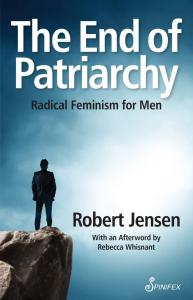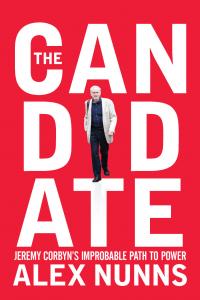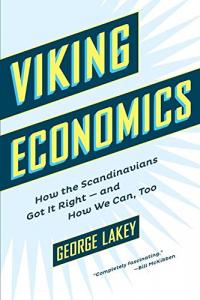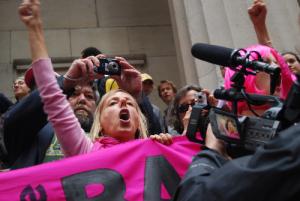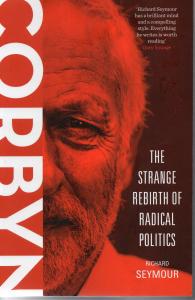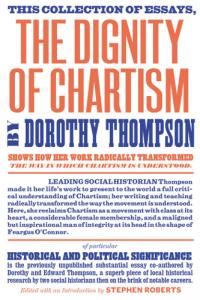An ‘epic fight’ between the broad left and the forces of the establishment has begun (see PN 2586–2587). The prize couldn’t be bigger. The British left, for the first time in decades, has a very real opportunity to implement significant progressive change on the epoch-altering scale of the 1945 and 1979 elections. As Novara Media’s Aaron Bastani tweeted: ‘If we win, and survive, and enact a major program of economic and political change, the whole world will watch. The UK really…
Sinclair, Ian
Sinclair, Ian
Ian Sinclair
First published in 2006, with a new edition last year, this is an engaging memoir of the mid-’90s anti-roads movement – one of the most successful UK nonviolent campaigns of recent times.
Jim Hindle tells the story of his time camping at Newbury, Fairmile in Devon, and Stanworth in Lancashire, resisting what the Thatcher government called ‘the biggest road-building programme since the Romans’.
While the activists lost the battles – each road was eventually built –…
Victory palms. GRAPHIC: EMILY JOHNS
On 2 February 2017, Phil Shiner, the award-winning human rights lawyer who brought the UK government to account for the 2003 killing of the Iraqi hotel receptionist Baha Mousa, was struck off by the solicitors disciplinary tribunal (SDT). In March 2017, Shiner, who was also ordered to pay interim costs of £250,000, was declared bankrupt, and was reported to be in poor health.
Shiner and his legal firm, by fighting for victims of the Iraq war, had…
‘But what about Nazi Germany?’ No doubt many Peace News readers have been asked this question when they have voiced support for nonviolence.
Summarising a range of published material, George Paxton shows that nonviolent resistance to Adolf Hitler’s government was widespread. And though it is often poorly-referenced and somewhat repetitive, this feels like one of the most important books I’ve read in a long time.
From underground newspapers, open letters, graffiti, and…
A professor of journalism at the University of Texas, Robert Jensen has a long history of activism focussing on US foreign policy, progressive journalism, climate change and pornography.
With The End of Patriarchy, he makes a strong, often deeply personal, case for radical feminism, which he believes has lost significant ground to individualistic liberal feminism and postmodern feminism in the broader culture and academia, respectively. For Jensen, the central tenet of…
Ian Sinclair: How does radical feminism differ from other forms of feminism?
Robert Jensen: First, by radical feminism I mean the understanding that men’s subordination of women is a product of patriarchy and that the ultimate goal of feminism is the end of patriarchy’s gender system, not merely liberal accommodation with the system. Second, radical feminism is central to the larger problem of hierarchy and the domination/subordination dynamics in other arenas of human life; while not…
Though there have now been a number of books published about Jeremy Corbyn’s election as the leader of the Labour Party, including Richard Seymour’s impressive Corbyn: The Strange Rebirth of Radical Politics (reviewed in PN 2596-2597), The Candidate is arguably the definitive account of those exciting days.
As the political correspondent of Red Pepper magazine, Alex Nunns is perfectly placed to chart Corbyn’s 2015 leadership campaign, writing a detailed,…
Though it is written for a US audience, George Lakey’s new book has much to offer progressive activists in the UK concerned about the ongoing imposition of austerity measures and the political settlement that will come out of Brexit.
According to Lakey, the economies of the descendants of the Vikings ‘have a sixty-year track record of delivering increased freedom and equality’ – a political reality he believes is within reaching distance for the US. A visiting professor for Issues of…
Having become one of the most prominent US anti-war activists protesting against the US-led ‘war on terror’, Medea Benjamin, co-founder of the group CODEPINK, has now turned her attention to her nation’s close relationship with Saudi Arabia.
‘I’ve been doing a lot of work around the Middle East conflicts since the 9/11 attacks’, Benjamin, 64, tells me…
Mark Curtis’s influential and constantly-useful book Web of Deceit – Britain’s role in the real world was published 13 years ago. Though it’s not made explicit, Britain’s Secret Wars seems to be an attempt to update Curtis’s critical history of UK foreign policy, with TJ Coles exposing often covert wars ‘waged for the financial benefit of sectional interests and result[ing] in widespread crimes against humanity’.
Other similarities to Curtis include endorsements…
Published a few weeks before the EU referendum, Richard Seymour’s latest book is an important and timely intervention into Labour party – and national – politics.
Seymour, a former member of the Socialist Workers Party, is known as one of the sharpest intellects on the Left, and his sympathetic analysis of the rise of Jeremy Corbyn to the Labour leadership doesn’t disappoint.
There is a welcome recap of the heady days of summer 2015, when the unassuming MP for North Islington…
Comprised of four long articles previously published in the London Review of Books, the latest book from legendary American investigative journalist Seymour Hersh critically examines the Obama administration’s foreign policy.
Citing senior – often unnamed – government, intelligence and military sources (there are no footnotes), Hersh’s version of events is significantly different from the official narrative pushed by Western governments and a supportive corporate media.…
In this passionate and readable book academic and commentator Roslyn Fuller takes apart the belief that, to quote Paul Weller, ‘the public gets what the public wants’.
According to Fuller, in Western democracies the popular will is stifled and twisted by a plethora of pressures. Top of her list is the nefarious influence of corporate financing, with money the deciding factor in around 80 percent of various elections, according to studies she cites. The serious problems with the UK…
After 60 years of making music, radical English singer-songwriter Leon Rosselson turns his attention to the post-financial-crash political landscape in this new album, made up of original compositions and rescued old songs.
On the title track, 'Karl Marx is scratching his head/they ought to be shooting the bankers/But they’re giving them money instead'. 'Looters' finds Rosselson comparing the rioters of August 2011 with the industrial-scale, officially-sanctioned looting carried out…
Dorothy Thompson, who died in 2011, was a leading historian of the Chartist movement - the popular working-class movement, active from the 1830s to the late 1850s, which agitated for universal male suffrage and parliamentary reforms such as a secret ballot, payment for MPs and equal-sized constituencies. In addition, both she and her husband, the labour historian EP Thompson, were leading members of the Communist Party until 1956, when they left in protest at the Soviet Union’s invasion of…






